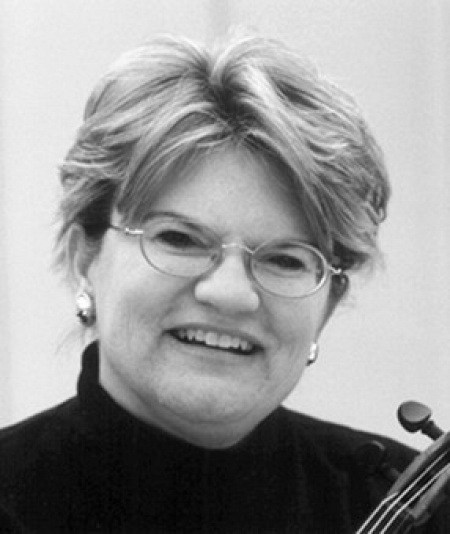American Suzuki Institute: Suzuki Chair Award, 2022

(transcribed from the acceptance speech)
Thank you so very much. Thank you to everyone who made this award possible. I am so humbled by the presentation of this award. As I think of the wonderful colleagues that I have worked with over the years, those that have passed on and those that I work with today, I am even more humbled. I have learned a tremendous amount from the colleagues with whom I have worked. I must specifically thank Margery Aber, who gave me an Honorarium Scholarship, so I could attend the American Suzuki Institute in 1973.
Now, to thank Dr. Suzuki—which is a difficult task! How can I properly express my full and deep gratitude? In 1972, I heard the Japanese Talent Education Tour Group and first met Dr. Suzuki. I tried to learn as much as I could every time I saw him. As my mother and father said, “I was a ‘lucky duck’ to be able to study with such a great man.” The 1972 tour group included a young boy (aged eight or nine) who played a piece by Sarasate. It was an amazing performance, but it was the three-year-old girl that brought tears to my eyes. It was because after her performance of “Go Tell Aunt Rhody,” she handed her violin to her teacher and then plopped down on the floor to play Jacks with her friend. “Ah! I thought. . .‘childhood’ plus education. . .every child can. . .Talent Education. . . .” What a magnificent idea!
In 1978, at the San Francisco International Suzuki Conference, Dr. Suzuki had just finished speaking and we were all headed down a hallway to the university cafeteria for lunch. Dr. Suzuki opened the door for me (always the gentleman) and then proceeded to ask me: “So, Ms. Titterington, how do you introduce vibrato?” “Well. . .uhhhhh. . . .” You can imagine my stuttering non-answer! But in the years that have passed, I have understood more and more what Dr. Suzuki meant by his inclusion of my thoughts. He wanted all teachers, all parents, and all people to understand what he meant by Talent Education, and how we could study together to bring the best education to the children. He wanted everyone to give to the children of the world their best effort in creating good citizens. So, it is with a full heart that I have always embraced Dr. Suzuki’s philosophy. The joy of childhood, the joy of learning, inclusion of all, Every Child Can, and a rich environment provided by parents—all of these contribute to the success of his philosophy. Quoting from his book, Nurtured by Love, “for Art turned out not to be in some high and far off place. It was right inside my ordinary daily self. The way a person expresses themselves is an art.”
In the devastated country of Japan after WWII, Dr. Suzuki sought to give a gift to the children. He wanted them to be ‘fine citizens’. Exposing them to great beauty was a first step. The beauty of great music changes one’s heart. Today, in America, we need those fine citizens.
This institute is called the American Suzuki Institute because Margery Aber wanted to give the children of America the same gift that Dr. Suzuki was giving in Japan. In the midst of our “crumbling” democracy and a worldwide climate emergency, we need fine American citizens more than ever.
YOU are the parents who will give your children the gift of a fine education. YOU are the parents who will give your children “hearts that know great beauty.” YOU are the parents who will help your children to become fine citizens. YOU can do it. I know you can. I know you will. Dr. Suzuki would be so pleased.
I cannot believe I have been able to spend my career working in this most magnificent field called “Talent Education.” Thank you to everyone for this amazing honor.
